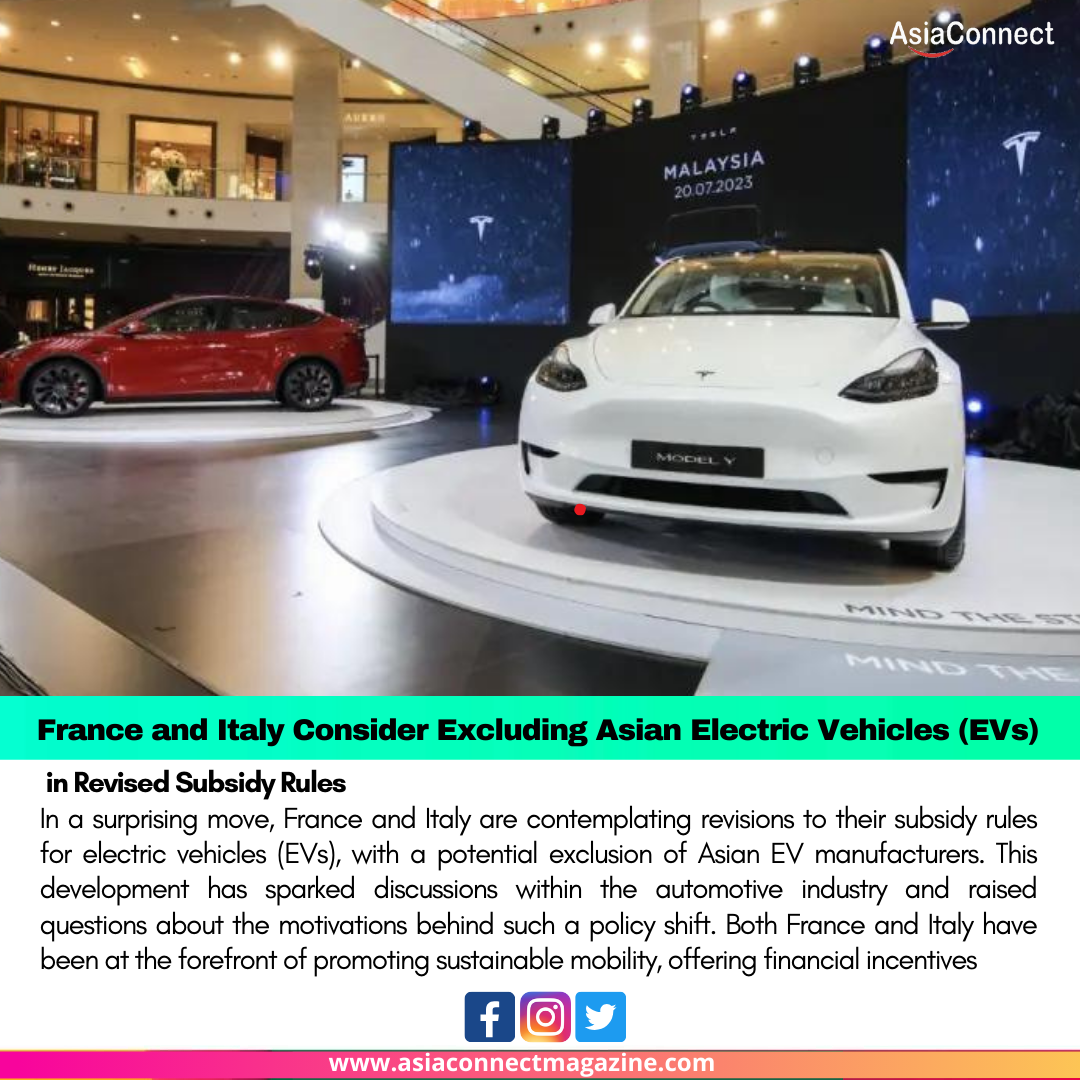In a surprising move, France and Italy are contemplating revisions to their subsidy rules for electric vehicles (EVs), with a potential exclusion of Asian EV manufacturers. This development has sparked discussions within the automotive industry and raised questions about the motivations behind such a policy shift.
Background:
Both France and Italy have been at the forefront of promoting sustainable mobility, offering financial incentives and subsidies to encourage the adoption of electric vehicles. These measures have been crucial in driving the transition towards cleaner transportation and reducing carbon emissions.
However, recent reports suggest that the two European nations are considering changes to their subsidy frameworks that could result in the exclusion of EVs manufactured by Asian companies. While the specifics of these potential revisions are not yet clear, the automotive industry is closely monitoring the situation for potential implications on the market dynamics.
Possible Motivations:
Several factors could be influencing this reconsideration of subsidy rules. One potential factor is a desire to boost domestic EV production and support European automakers. By excluding Asian EVs from subsidies, France and Italy might aim to create a more level playing field for their own manufacturers, fostering competitiveness in the rapidly growing EV market.
Additionally, concerns related to intellectual property, technology transfer, and the desire to maintain control over critical aspects of the EV supply chain could be influencing this move. European governments may be looking to protect their interests in the burgeoning electric vehicle industry, which is considered a strategic sector for the future of mobility.
Industry Reaction:
The automotive industry, both in Asia and Europe, is closely watching developments and assessing the potential impact of such a policy shift. Asian electric vehicle manufacturers have made substantial investments in research and development, contributing significantly to the innovation and advancement of EV technologies.
If implemented, exclusionary subsidy rules could have repercussions for the global electric vehicle market, affecting market dynamics and potentially leading to trade tensions. It remains to be seen how affected Asian countries and companies will respond to such policy changes.
Global Implications:
The global electric vehicle market is interconnected, with supply chains and collaborations spanning continents. Any measures that disrupt the free flow of electric vehicles between regions could have broader consequences on international trade relations.
Furthermore, such a move might prompt a reevaluation of subsidy policies in other regions, potentially leading to a tit-for-tat scenario where different countries adopt protectionist measures in response to one another.
Conclusion:
As France and Italy contemplate revising their subsidy rules for electric vehicles, the automotive industry is on alert for potential shifts in market dynamics. The motivations behind excluding Asian EVs from subsidies are likely complex, involving considerations of domestic economic interests, technological sovereignty, and competitiveness.
The coming months will reveal the specifics of these policy revisions and their implications for the global electric vehicle landscape. Industry stakeholders, policymakers, and environmental advocates will closely follow these developments, recognizing the importance of international collaboration and open markets in achieving a sustainable and widespread transition to electric mobility.





